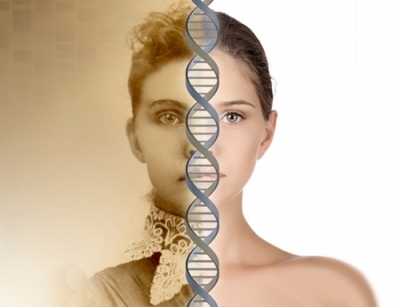Select a category

THE INFLUENCES OF GENES ON BEHAVIOUR
4 years ago
~4.6 mins read
Advertisement
Scientists have studied twins for many years to understand how genes and environments influence differences among individuals, spanning conditions such as cancer and mental health to characteristics such as intelligence and political beliefs.
Although the twin method is well-established, findings from twin studies are often controversial. Critics of twin research question the value of establishing that characteristics, such as health behaviours, have a strong genetic basis. A primary concern is that these types of findings will result in complacency or fatalism, effectively undermining motivation to change lifestyle. But there is very little evidence to support these fears.
Genetic influence on human characteristics is often misinterpreted. It is wrongly assumed that a behaviour that has strong genetic influence (highly heritable) must be biologically hardwired. However, genes are not destiny. Genes are often dependent on environmental exposure, such that genes can have a stronger effect, or no effect, depending on the environment.
For example, people with a genetic predisposition to lung cancer are unlikely to develop the disease unless they smoke. The same is true of behaviour. Behaviour is only elicited in response to environmental cues.
Advertisement
The influence of genes on behavior has been well established in the scientific community. To a large extent, who we are and how we behave is a result of our genetic makeup. While genes do not determine behavior, they play a huge role in what we do and why we do it.
Behavioral genetics studies heritability of behavioral traits, and it overlaps with genetics, psychology, and ethology (the scientific study of human and animal behavior). Genetics plays a large role in when and how learning, growing, and development occur. For example, although environment has an effect on the walking behavior of infants and toddlers, children are unable to walk at all before an age that is predetermined by their genome. However, while the genetic makeup of a child determines the age range for when he or she will begin walking, environmental influences determine how early or late within that range the event will actually occur.
The field was originally focused on testing whether genetic influences were important in human behavior (e.g., do genes influence human behavior). It has evolved to address more complex questions such as: how important are genetic and/or environmental influences on various human behavioral traits; to what extent do the same genetic and/or environmental influences impact the overlap between human behavioral traits; how do genetic and/or environmental influences on behavior change across development; and what environmental factors moderate the importance of genetic effects on human behavior (gene-environment interaction). ‪
Most recently, the field has moved into the area of statistical genetics, with many behavioral geneticists also involved in efforts to identify the specific genes involved in human behavior, and to understand how the effects associated with these genes changes across time, and in conjunction with the environment.
(Encyclopedia Britannica, Behavior Genetics by Robert Plomin, 4-11-2011)
GENETICS
Genetics is the study of heredity. Heredity is a biological process where a parent passes certain genes onto their children or offspring.
Advertisement
Previously it had been difficult to link particular chromosome with psychiatric illness. However in a number of studies over years such an association has been made. E.g., schizophrenia, mood disorders, neuropsychiatric disorders, personality disorders, alcoholism, and personality traits.
Specific chromosomes have been associated with other disorders with behavior symptoms. Example:
1. Schizophrenia has been associated with markers on chromosome 1, 6, 7, 8, 13, 21 and 22.
2. Bipolar disorder and major depressive disorder have been associated with markers on chromosome 3, particularly 3p21.1.
TYPES OF STUDIES USED IN GENETIC RESEARCH
· Twin studies
a. Used in genetic research to study the correlation between genetic inheritance and behaviour due to the common genetics shared by twins.
b. Monozygotic twins (MZT) identical - share 100% genetic material.
c. Dizygotic twins (DZT) fraternal - share 50% genetic material.
d. It is usually further explored, by studying the twins either separated or together to make a correlation of their behaviour.
· Adoption studies
a. Allow researchers to study the comparison between genetic and environmental influence on behaviour.
b. Adopted children share no genes with their adoptive parents but 50% of genes with their biological parents.
· Family studies
a. Study behaviour between family members who have similar genetics to different degrees.
· Outline intelligence
a. Intelligence is an aspect of behaviour that has been studied in relation to genetics.
b. It was questioned whether intelligence was attributed to genetic or environmental factors.
Advertisement
c. IQ tests have been developed by a French person called Binet to measure of intelligence and are used in much psychological research.
CONCLUSION
Identifying a chromosomal abnormality in a patient with mental disorder is of profound importance to the individual and their family. Diagnosis of a chromosomal abnormality can alter medical management and affect prognosis with respect to known associated conditions, and has important genetic counseling implications. In addition, receiving a genetic diagnosis may relieve parents of guilt or inappropriate blame for causing behavioral manifestations of the condition.
REFERENCES
1. Boundless. "The Influence of Genes on Behavior." Boundless Psychology. Boundless, 26 May. 2016.
2. Dick, Danielle; Rose, Richard (2002). "Behavior Genetics: What's New? What's Next". Current Directions in Psychological Science (11): 70–74.
3. Encyclopedia Britannica, Behavior Genetics by Robert Plomin, 4-11-2011
4. http://theconversation.com/why-it-is-useful-to-understand-the-role-of-genetics-in-behaviour-67502
5. Wikipedia, Human Behavior Genetics.
Was my post useful? Support me to keep creating useful content
Disclaimer If this post is your copyrighted property, please message this user or email us your request at team@pejoweb.com with a link to this post
8 likes
Advertisement
Advertisement
 Gloriaoghale
Gloriaoghale